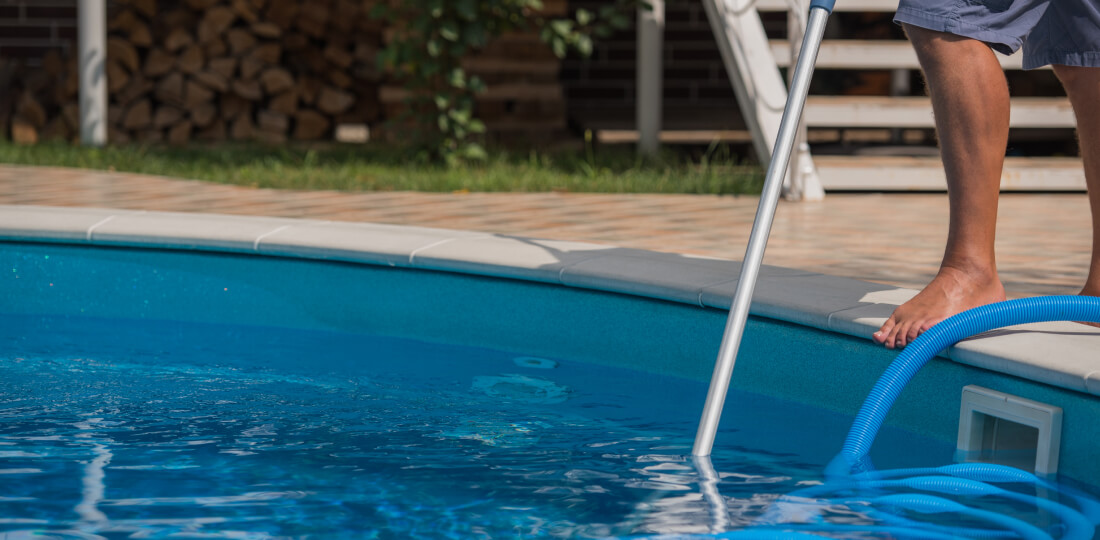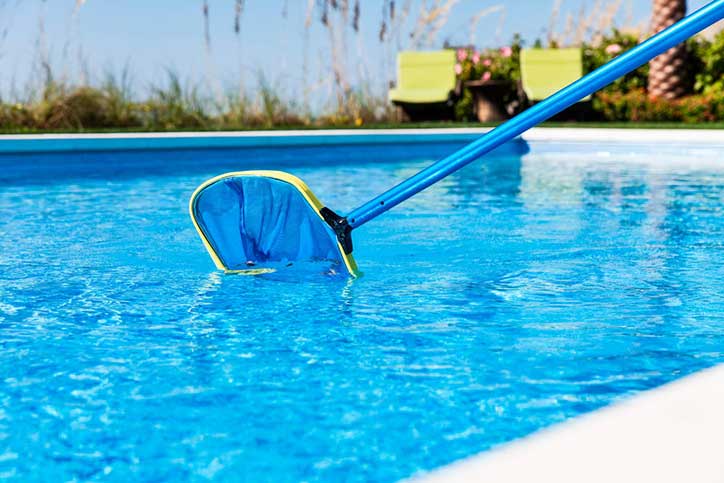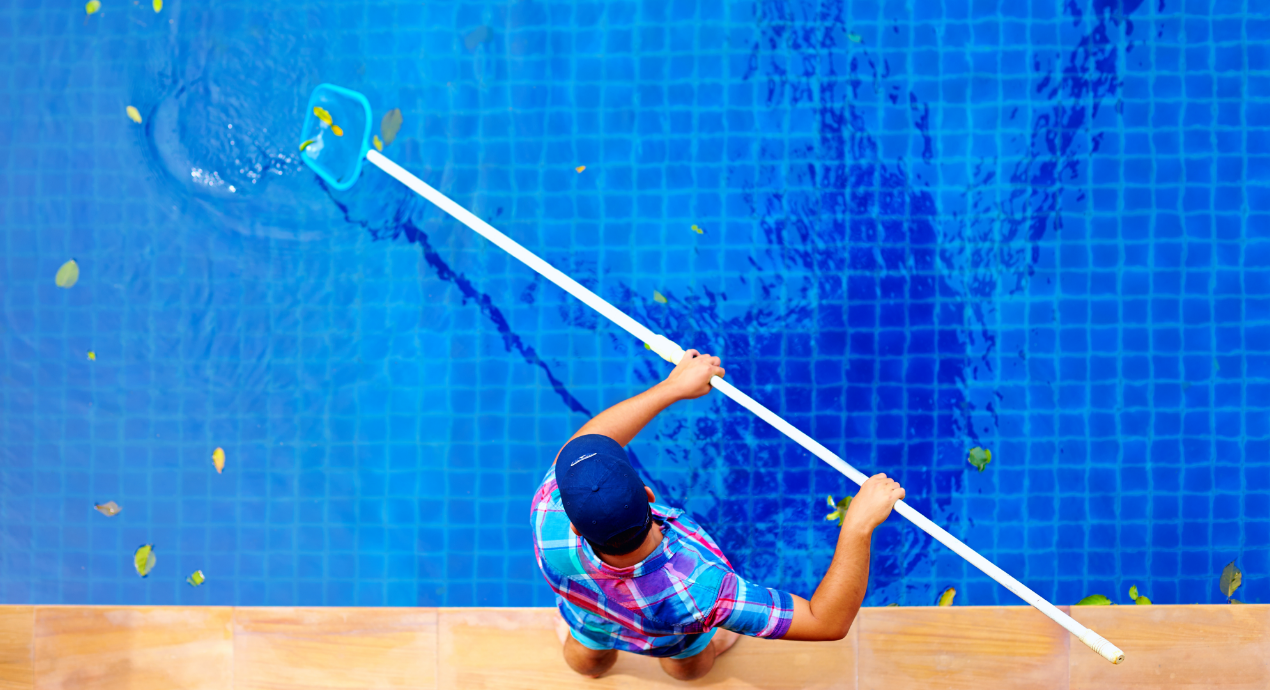Comprehensive Pool Inspection to Ensure Safe and Efficient Operation
Comprehensive Pool Inspection to Ensure Safe and Efficient Operation
Blog Article
Important Swimming Pool Upkeep Tips to Keep Your Water Sparkling Clean
Keeping a beautiful swimming pool needs a methodical method to water care and sanitation, which inevitably adds to both the aesthetic allure and long life of the pool itself. Sticking to these essential methods not just boosts the quality of your pool water yet additionally safeguards against prospective concerns that could escalate into pricey repairs.
Test Water Chemistry Routinely
To guarantee a pleasurable and secure swimming experience, frequently testing water chemistry is vital. Proper water balance not only improves swimmer comfort however also protects swimming pool devices and surfaces. The primary chemical specifications to keep track of consist of pH, chlorine degrees, alkalinity, and calcium firmness.
pH levels need to be maintained between 7.2 and 7.8, as this range reduces skin and eye inflammation while maximizing chlorine efficiency. Chlorine degrees should preferably be in between 1-3 parts per million (ppm) to supply adequate sanitation without creating undesirable smells or irritation. Total alkalinity, which serves as a barrier for pH, must be kept in between 80-120 ppm to maintain water chemistry and avoid fluctuations.

Keep the Pool Filter Clean
Preserving correct water chemistry is just part of efficient swimming pool care; maintaining the pool filter clean is equally essential for optimum performance. The pool filter plays an important role in removing particles, dirt, and contaminants from the water, ensuring a safe and enjoyable swimming setting. Over time, filters can come to be blocked with bits, which can dramatically decrease their performance.

Furthermore, keep an eye on the pressure scale on your filter system. A stress increase of 8-10 psi above the normal operating variety normally suggests that it's time for cleaning. Disregarding to maintain a tidy filter can bring about poor water circulation, out of balance chemistry, and boosted pressure on the pool pump, eventually causing greater energy costs and potential tools failure.
Skim and Brush Often

Cleaning the swimming pool walls and floor is just as essential. Use a swimming pool brush with an ideal bristle type for your swimming pool surface-- nylon brushes for plastic or fiberglass pools, and stainless steel for plaster or tile surfaces.
Maintain Correct Water Degrees
Maintaining the pool surface area tidy through frequent skimming and brushing considerably adds to overall water quality, however keeping appropriate water levels is similarly essential for optimum pool health and wellness. The water level in your swimming pool should preferably go to the navel of the skimmer opening. This makes certain that your skimmer can properly eliminate particles and floating impurities, preventing build-up that can compromise water clarity and top quality.
Low tide degrees can result in pump damages, as the pump might run completely dry, risking pricey repairs. Alternatively, exceedingly high water degrees can create water to overflow, watering down chemical balances and producing an unpleasant mess. Regularly inspect your pool's water degree, especially after heavy rainfall or substantial evaporation because of warmth.
Furthermore, think about factors such as swimming pool use, ecological conditions, and the type of water functions in your swimming pool, as these can influence water levels. If you discover yourself consistently fighting changing water levels, mounting a pool cover can help minimize dissipation and keep a secure level. Ultimately, routine monitoring and change of water degrees will certainly aid make sure a healthy and balanced swimming atmosphere and extend the life of your pool tools.
Schedule Seasonal Upkeep
Recognizing the significance of seasonal maintenance is essential for guaranteeing your swimming pool continues to be in ideal problem year-round. Each period brings unique obstacles and conditions that can affect the water high quality and structural integrity of your swimming pool. Pool Inspection By scheduling upkeep tasks on a regular basis, you can protect against small issues from escalating into costly fixings.
In the spring, emphasis on opening up the pool, examining the filtering system, and stabilizing the chemical levels. This sets a strong foundation for the swimming season - Pool Inspection. As summer approaches, routine maintenance such as skimming debris, cleaning surface areas, and monitoring water degrees ends up being vital to preserve cleanliness and safety and security
As fall shows up, plan for cooler temperatures by getting rid of fallen leaves and debris, and consider winterizing your swimming pool if it will not be made use of throughout the chillier months. This includes reducing water degrees and including winterizing chemicals to protect against freezing.
Throughout the winter months, periodic examine the swimming pool cover and tools are necessary to guarantee every little thing remains undamaged. By sticking to a seasonal upkeep routine, you can prolong the life of your pool and maintain it welcoming and safe for usage year-round.
Conclusion
Routine pool upkeep is essential for making sure water quality and safety and security. By continually evaluating water chemistry, keeping the pool filter in ideal problem, and doing routine skimming and cleaning, swimming pool proprietors can efficiently stop algae growth and various other concerns.
By preserving proper water chemistry, swimming pool owners can make sure a risk-free setting, lengthen equipment life, and enhance total enjoyment of their swimming pool.
Preserving correct water chemistry is just part of efficient pool care; maintaining the swimming pool filter clean is just as essential for optimum performance. Utilize a swimming pool brush with an ideal bristle kind for your swimming pool surface-- nylon brushes for vinyl or fiberglass swimming pools, and stainless steel for plaster or ceramic tile surfaces.
Keeping the swimming pool surface tidy through regular skimming and cleaning considerably adds to general water quality, but preserving proper water levels is just as crucial for ideal swimming pool health and wellness.In addition, take into consideration elements such as swimming pool usage, environmental problems, and the kind of water features in your pool, as these can influence water levels.
Report this page